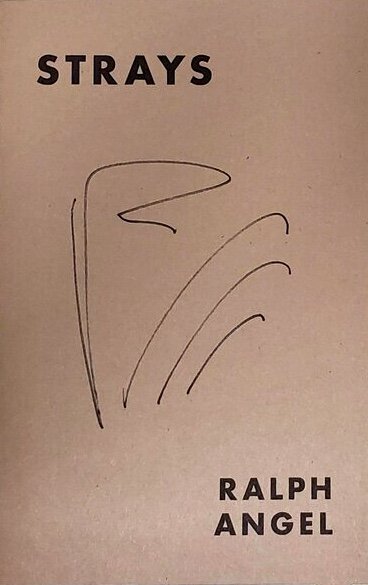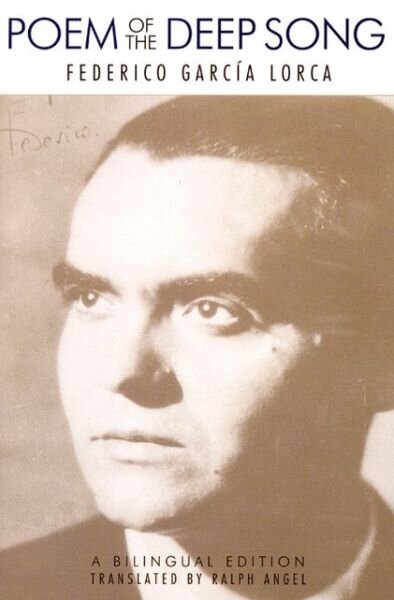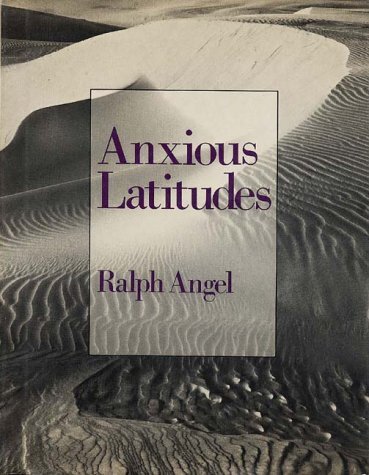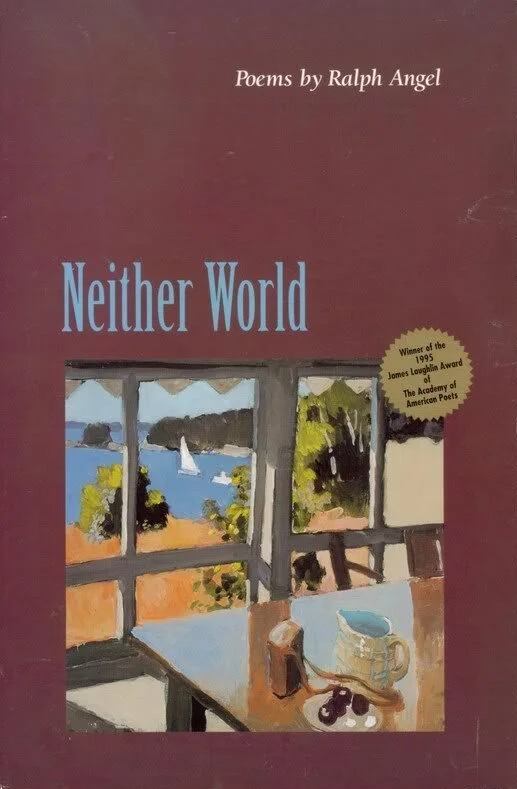The
Ralph Angel
Collection

Currently out of stock; available for purchase from Foundlings Press here.
Strays is a project celebrating language loved, lost, and rediscovered. Printed and hand-bound in Buffalo by the Foundlings Press team, books in the Stray series capture experiments, excerpts, odd sequences, found poetry, and material from the cutting floor. Each cover features the poet’s interpretation of the Foundlings logo and brandmark, Wally.
Strays Pack 2 features three hand-bound books from poets Ralph Angel, Robin Lee Jordan, and Ata Moharreri.

Poema del cante jondo and Romancero gitano, the books of poems that Lorca wrote first, out of his excited response to gypsy music, poetry, and dance all around him in Granada, contain some of his most powerful and trenchant lyrical work, original, inimitable, daring, and a clear expression of the duende, the Dionysian daemon in poetry, of which he wrote eloquently. A new, fresh, consistent translation—and Mr. Angel’s is all of these—is a welcome return to that wild dance, in this bilingual edition. W.S. Merwin
Ralph Angel's poetry is inventive in its language and its look at things; it is free and alive; it is like no one else's, and it belongs to everyone. Exceptions and Melancholies is a marvelous and strange collection of poems that we can only be thankful for, for their wisdom, their loneliness, and their company over the years. Jean Valentine
Just as Richard Diebenkorn defined Los Angeles for me in his paintings, so too has Ralph Angel defined that city in his remarkable poetry. And I am amazed by the timeless and universal quality of his work. He brings something ancient and compelling—from Andalusia through Rhodes and Constantinople, through the Pacific Northwest—that we recognize as a kind of rare Sephardic wisdom, a brilliance traveling at the speed of Los Angeles light. He is one of America’s very best poets. A true visionary. Tomaž Šalamun
Angel's poems are stamped indelibly with the mark of a unique, shaping imagination, and they're fresh with news of how it feels to live right now. —Mark Doty
Neither World, winner of the James Laughlin Award of The Academy of American Poets, is an exhilarating, heartbreaking, deliciously subversive place. —Gail Wronsky
Upon replenished, uncultivated ground, the wildness of mere being comes clear. In Neither World, Ralph Angel does not so much seek as see the wild in fierce disclosure. —Donald Revell

Ralph Angel, the Magellan of those not-remote anxious latitudes where we spend many of our waking hours, has, in his words, 'struck up a rapport with doubt' and doubt gives the jarring music of his poetry its ring of truth. This is an extraordinary first book of poems. John Ashbery
Limited Edition. A collection of thirty-one full-color lithographic images on premium paper. Softcover with tipped-in image and debossing. Includes interview with author.
Ralph Angel experimented with manipulated Polaroid film over the years, creating mysterious camera-less images filled with texture, saturated color, and light.
To me, they speak to a world as tiny as a microcosm, you know, microbiology, and as large as something cosmic and universal. So, when you’re looking at them you don’t know what you’re looking at. You could be looking at a picture of a solar flare or an explosion in the far reaches of the universe, or you could be looking at an internal organ that’s putrefying. So, there’s everything and nothing. It spans image-making and it confounds expectation.
Andy Burgess, Dark Spring Press





Reading the haunted, masterful poems of Ralph Angel is like being gently dropped into the ever-fluctuating substance of the day. The temperature is around 70 degrees. One could be in a languorous painting, riding this brushstroke and then the next, or just as easily, in a room somewhere, in L.A., Seattle, Amsterdam, the Mediterranean . . . on a train, in a plaza. Eventually the treacherous crevices and schisms arrive, where, everyday, we break down. All the guilt, pain, beauty, love and loathing of being alive is populated by figures who speak, speak back, and then through an omniscient, doubtful and pained visionary. This is Your Moon. It truly is. 'Of human unfinished. / The spirit in time.' Gillian Conoley